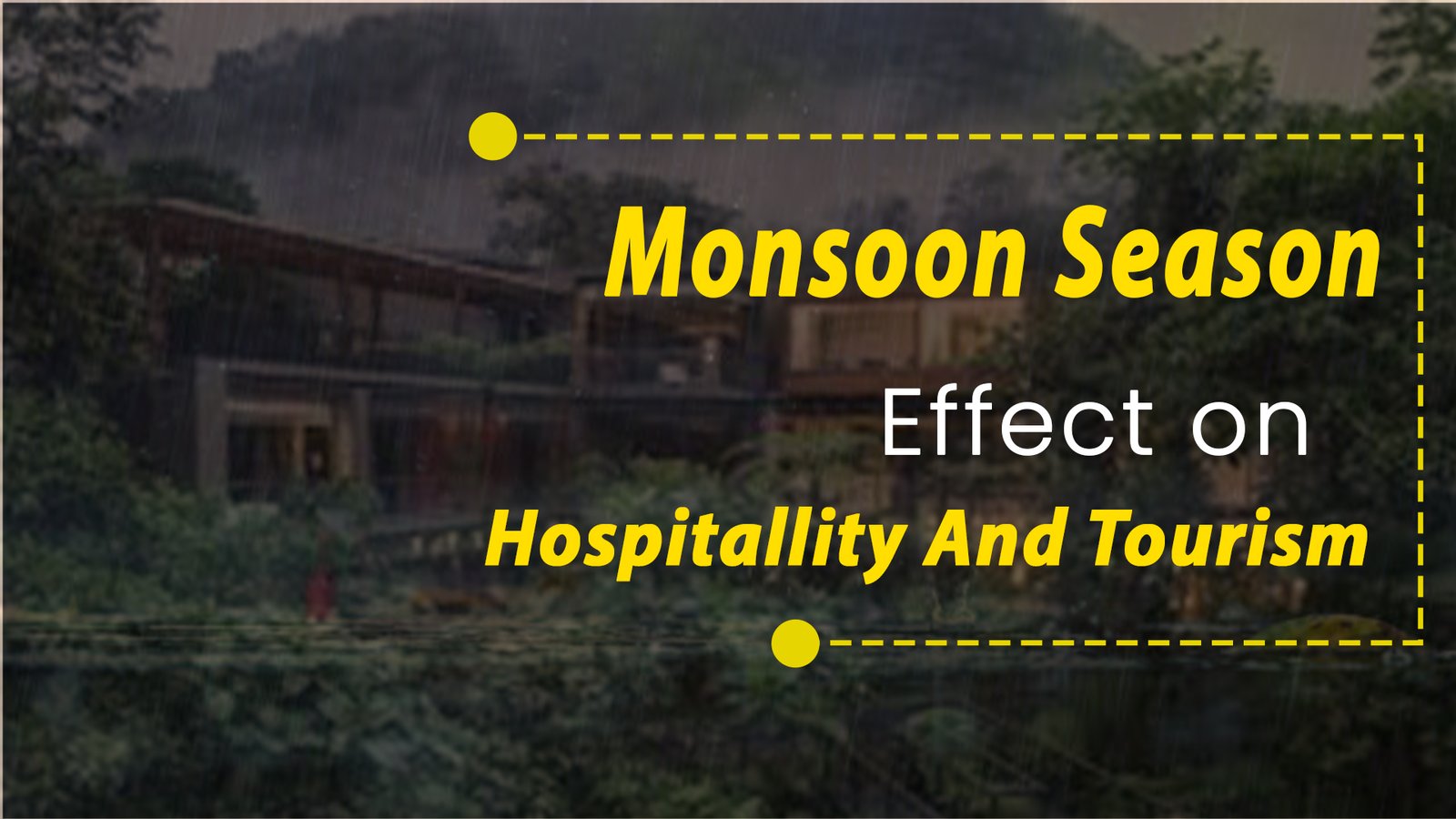
How the Monsoon Impacts the Hotel Management Industry in India
India’s monsoon season lasts from July to September.
It’s a blessing for farmers and helps refill water reservoirs.
But for the hotel management industry, the rains bring both challenges and opportunities.
Let’s look at how the industry changes during the monsoon and how businesses adapt.
1. Monsoon and Hotel Industry Dynamics

During the rains, many popular tourist spots like hill stations and wildlife sanctuaries see fewer visitors.
For example:
In Himachal Pradesh, hotel bookings drop from 80% in June to just 20–30% during heavy rains.
To attract guests, hotels often:
- Cut room prices by 50% or more
Offer food discounts
Promote indoor stays like self-care packages
2. Regional Variations and New Opportunities

Not all regions see the monsoon as a problem. Some turn it into a selling point.
Kerala: Rains make it the perfect season for Ayurvedic therapies like Panchakarma.
Goa: Promotes monsoon tourism with cultural experiences, nature escapes, and relaxing holiday packages.
3. Disruptions to Tourism

Monsoons can also cause natural disasters such as:
- Landslides
- Flash floods
For example, on February 6, 2023, heavy rains in Himachal Pradesh and Uttarakhand caused:
- Serious infrastructure damage
- Loss of lives
Long-term drop in tourist visits due to safety concerns
4. How Hotel Departments Respond in Monsoon

Hotels have many departments that adapt their work during this season:
- Sales & Marketing: Special deals, corporate packages, wellness getaways, MICE (Meetings–Incentives–Conferences–Events) offers
- Front Office & Reservations: Flexible cancellations, monitoring weather updates, rebooking guests
- Housekeeping & Engineering: Waterproofing, safety checks, smooth guest movement in rainy weather
- Food & Beverage: Comfort food menus, indoor dining experiences, seasonal local ingredients
- Wellness & Spa: Focus on Ayurveda and spa retreats
5. Hospitality Education Scope

Students are increasingly choosing hotel management course in states like
- Himachal Pradesh
- Uttarakhand
- Punjab
- Uttar Pradesh
- Karnataka
- Haryana
- Chandigarh
Why? Because the industry needs trained professionals who can handle:
- Seasonal demand changes
- Risk management
- Niche tourism like wellness travel
6. Strategies for Adapting and Thriving

To reduce monsoon-related losses, hotels and tourism businesses are:
- Promoting indoor and experiential tourism—Ayurveda, culture, heritage, tea-plantation stays
- Running monsoon tourism campaigns (like Goa)
- Offering discounts and easy cancellations
- Strengthening infrastructure and training staff for emergencies
- Targeting domestic budget travellers
Best Hotel Management Colleges After 12th

If you want to work in the hotel and tourism industry, here are some great places to study:
- Hotel Management College in Himachal Pradesh
- Hotel Management College in Uttarakhand
- Hotel Management Course in Chandigarh
- Hotel Management College in Uttar Pradesh
- Hotel Management College in Punjab
- Hotel Management in Karnataka
- Hotel & Restaurant Management in Haryana
Conclusion
Monsoon season changes the way hotels and tourism businesses work.
While it can reduce travel in some places, it also creates new opportunities—especially for wellness and cultural tourism.
With smart planning, flexible services, and trained professionals, the industry can turn rainy days into profitable days.
If you’re a student from Mumbai, Delhi, or any other city, studying hotel management in Himachal, Uttarakhand, Punjab, Haryana, Karnataka, or Chandigarh can give you the skills to succeed in any season.
Join NFCI today and prepare for a successful career in hospitality.
Enroll Now





